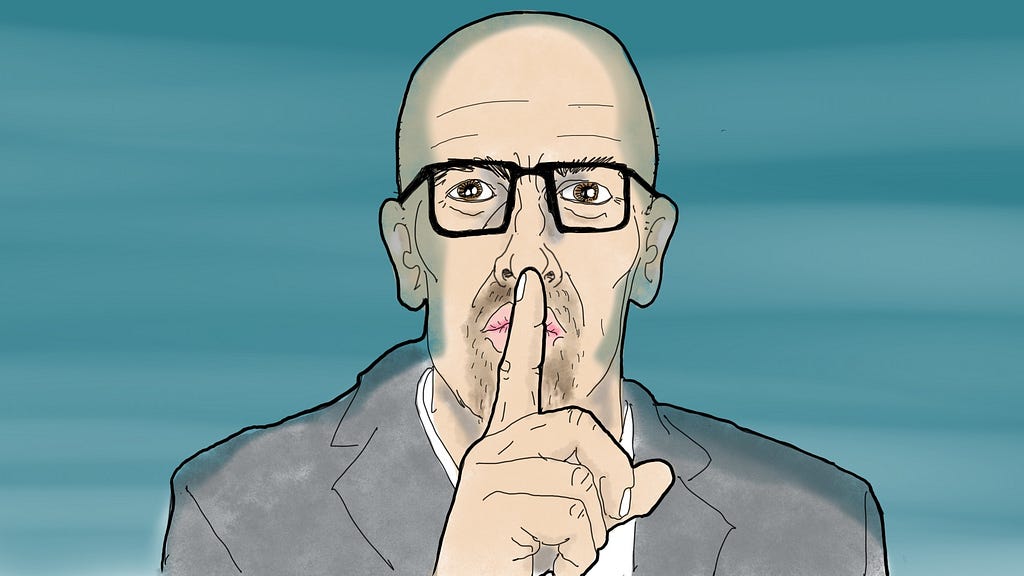Is Apple wrong for holding a hard line on leakers?

Compulsively honest is how I might describe myself. Yet, at any given time, I have one or more big secrets, ones I can’t share with friends and family.
I’ve become a secret keeper and I’m pretty good at it, too.
I’m proud to hold my tongue, to get that rare glimpse behind the curtain because I agreed to keep a secret.
Holding a secret indefinitely is usually not part of the plan. Every embargo or non-disclosure agreement (NDA) needs an end date, the moment when parties agree I can speak and write freely.
It’s known as, in my industry at least, access journalism. Tech journalists trade discretion for access to privileged information.
Without this agreement, you can’t have embargoes, background conversations are fraught with minefields and OTRs (off the record) are essentially impossible.
I’ve been thinking about all this as I read Apple’s leaked memo about leaks. Apple should be proud. It achieved a sort of double-negative of non-disclosure.
Obviously, Apple is neither happy nor proud. They apparently wrote the memo, which threatens everything from dismissal to legal action and jail time, after an employee handed over the details of an internal software strategy meeting to Bloomberg journalist and scoop-machine Mark Gurman. Gurman also got hold of the leak memo. All he needs is an Apple memo on the leak of the leak memo for a hat trick.
Gurman is, in case you haven’t guessed, not an access journalist. I doubt he’s ever signed an NDA. He digs and cultivates internal contacts below and beyond the wall of a company’s PR contacts and is always on the lookout for the information Apple doesn’t want you to know yet or ever.
I’ve always believed there’s room for both kinds of journalists. And I can’t say I see anything wrong with Gurman publishing what people are handing him, as long as he can verify his sources and the accuracy of the information.
I was surprised though about the reaction to Apple’s memo. Apple’s job is to make awesome technology, sell it to consumers and then use those profits to build more, expand the business and deliver returns to stock holders. Much of that is at risk if all their plans are published for millions, especially competitors, to see. Granted, this section of Apple’s alleged memo is terrifying:
Leakers do not simply lose their jobs at Apple. In some cases, they face jail time and massive fines for network intrusion and theft of trade secrets both classified as federal crimes. In 2017, Apple caught 29 leakers. 12 of those were arrested. Among those were Apple employees, contractors and some partners in Apple’s supply chain. These people not only lose their jobs, they can face extreme difficulty finding employment elsewhere.
It’s not the first time Apple’s been accused of a leak-based overreaction. Few will ever forget what happened in 2010 to Gizmodo’s Jason Chen when he got his hands on an iPhone 4 prototype months before the company was set to unveil it.
As with other leaks, this one could be traced back to an Apple employee. In the case of the iPhone 4, Apple lost control of the secret because a careless employee left it in a bar.
Apple claimed the phone was stolen goods, which led to California police breaking down Chen’s door and searching his home. It felt like a disproportionate response and served as a stark reminder of how seriously Apple takes its secrets. I wasn’t entirely surprised by Apple’s reaction.
Over the years, I’ve signed dozens of Apple embargoes. The first time I read one, the scope of it terrified me. I can only imagine the agreement Apple has employees sign. For the Apple NDAs, though, I realized that they were mostly boilerplate text intended as a guide, a strict one, sure, and Apple would make reasonable adjustments, especially if you gave them a heads-up first.
Apple is, naturally, an easy target. It’s a near-trillion-dollar company that touches hundreds of millions of people, and few companies are as closely-watched. We spend 18-to-24 months pondering the next big iPhone release. Every little rumor and innuendo is snacked on like the last potato chip on a desert island.
Some might say our tech news cycles would be simpler and far less annoying if Apple just opened the kimono and let it all hang out. I’m sure Apple would survive this. But a world without tech secrets would be disastrous for all the companies that are not Apple.
I’ve also entered into embargo agreements with countless smaller companies, many of which have just the one product they pre-briefed me on. If I ignore the agreement and write a post or even share a tweet about it, I could irreparably damage their company. These smaller firms never threaten jail time for leakers, but the stakes are just as high — if not higher — for them.
Some years ago, I got into an online war of words with TechCrunch founder Michael Arrington, who publicly proclaimed that he would happily break any embargo he’d already agreed to. He claimed this was okay because embargoes are meaningless, and he wasn’t a journalist. I agreed with the last point and may have called him something else.
I came away from that dust-up with an even firmer belief in the importance and power of secrets. Aside from building anticipation, they can help build better products. Apple and others have moved embargo dates when they realize a product or technology isn’t quite ready. It’s better for them and their customers than if they fail publicly. Granted, I like a big public failure as much as the next journalist, but if a company wants to use the cover of an embargo to make better products, I support that too.
I’ve signed and agreed to verbal embargoes for gadget stories, science stories and policy stories. Yet, compared to all the reporting and stories I’ve written, they only correlate to the tiniest fraction of my output. Does keeping these secrets make me less of a journalist? Maybe. I think it’s made me a better and more reliable technology reporter.
My readers trust me and so do my contacts at countless tech companies. For the work I do, this balance serves me well. Also, I don’t think I could survive jail time.


No comments:
Post a Comment